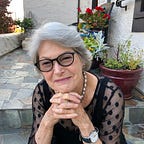While reading “Welcome to the Unknown,” an article by Jeremy Hunter about transitions in the current issue of Mindful (volume 8, #3), I was reminded of an earlier transition guru, William Bridges, who wrote several books about the same topic.
Bridges’ many books include The Way of Transition, one of his later books, published in 2001 (he died in 2013). It was not his first book on the topic.
What Hunter reminded me was that change is different from transition. A change is an event, moving to a new home or apartment, losing a spouse, having a baby. A transition is what happens after that, that leads to a new way of thinking or being. Bridges stresses that the change is an ending not a beginning, the end of an era in a beloved place, the death of a beloved partner, or the end of a certain kind of freedom in order to become a parent.
While Hunter also describes what comes after change as transition, Bridges has another name for it, The Neutral Zone. In that zone we are not who we were before the ending. We are not who we will be. We are, as one of my favorite professors used to say, “like a fish flopping on a dock” — not swimming happily in the lake, and not quite dinner yet (pardon the bad analogy).
We older adults have been through lots of change and at least a few transitions. The first painful transition I can remember as a young adult began with losing a job. I’d always wanted to work in the theater. I was managing director (the money and administration person in an arts organization) of a regional playwriting center in the midwest. The organization folded (temporarily) due to a lack of funding. I won’t bore you with the whole gory story, but the board of directors decided to let all of the small staff go rather than deal with the reasons we were not able to raise sufficient funds to continue.
Not only did I lose my income, but I lost my identity. For a painful three months I talked with people who knew me well to determine what might be next professionally, and danced on the edge of poverty. Lots of wonderful people helped me. At the end of those months I had a new job doing something I’d never dreamed of doing. Bridges calls this the New Beginning. I was not the same person I’d been at the playwriting organization. I was sadder, but more realistic about what could happen to anyone, and more determined to reinvent myself as necessary. It has been necessary several more times in my life.
The advantage I have over a much younger adult is that I know I can do it. I am confident that if the worst happened (and we are all now living with a version of the worst), I can and will survive — until my ultimate end comes.
Bridges mostly worked with organizations, trying to help them understand that change, real change, only happens after transition (his Neutral Zone). Employees need to mourn the ending that mandated change. They need to try new stuff, flounder, and eventually come to a new understanding of what works. Most organizations (including, I’d guess, most of those with whom Bridges worked) have changes that are mandated by CEOs and Boards of Directors who think that everybody besides them should change. In my own experience as a director of learning and development, that NEVER works.
But it does work in our personal lives, at least in part because we have so little control over some of the changes that require a period of transition. We are smack dab in the middle of one of those now. No one knows when the pandemic will end. Our grandchildren can’t “go” to college as most college is online now. We can’t visit those who are sick with the virus. We can’t travel. Much of life as we have known it is over, at least for the foreseeable future.
We are in transition, in the Neutral Zone, although I suspect it doesn’t feel very neutral to most of us. If we remember and appreciate how many transitions we’ve been through before, we might take Hunter’s advice to:
- Recall other endings and transitions in our lives. How did we cope?
- Acknowledge and mourn the things we’ve lost.
- Bring closure (if we can) to any unfinished business.
- Accept that discomfort is a part of any transition.
- Try new things we might be interested in — short hikes, an online writing class, a gardening project.
- This is a no path/not knowing time. Resistance to it only makes it worse.
- Find supporters. Without them, my first transition would have been impossible.
